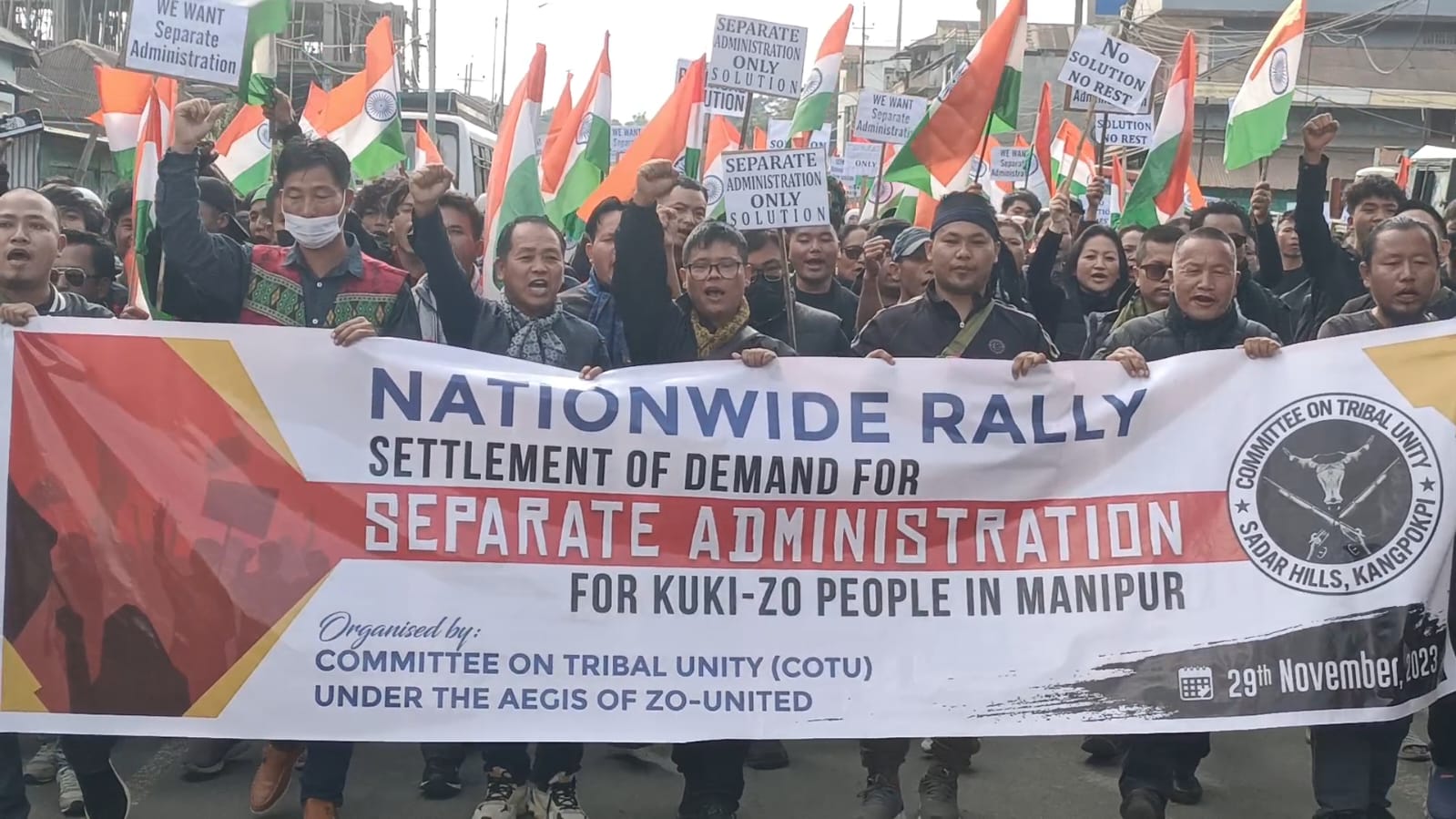
In the heart of Manipur, a land known for its diverse communities and rich cultural tapestry, a tale of tragedy and division unfolds—a story that deserves our attention and empathy. The events that transpired on the harrowing night of May 3 are etched into the memories of the Kuki-Zo people, forever altering their lives and driving them to demand Separate Administration.
On that fateful night, as darkness shrouded the landscape, the Kuki-Zo community’s fate hung in the balance. They believed that salvation might have been within reach had the Meitei government deployed security forces with the same urgency they did months later. The echoes of this initial inaction continue to reverberate as we explore the complex web of events that followed.
The silence of the Chief Minister during the Meitei mob’s rampage, which saw the merciless destruction of over 20 homes in Kangvai and the gruesome murder of Pastor Sehkhohao Kipgen in Phoughakchao, was deafening. It raises questions about what might have been if the Bishnupur Police had been empowered to control the situation rather than inadvertently assisting the mob.
Fueling the crisis were unfounded rumors that spread like wildfire, igniting fear and anger. Fake news of rape, killings of Meiteis, and the burning of their houses only added fuel to an already raging fire. Without verification, armed cadres, reminiscent of SWAT teams, from Arambai Tenggol and Meetei Leepun stormed the capital, heading directly to marked gates.
Yet, amid the chaos, hope remained. The Kuki-Zo community believed that their Chief Minister, if as sincere about their welfare as he was about safeguarding his own home, could have controlled the mob that ran amok that night. With the right leadership, many lives might have been spared, and reconciliation might have been possible.
Tragically, the government’s inaction and, some claim, its complicity allowed the Meitei mob to terrorize the Kuki-Zo people, even parading Kuki-Zo women naked. This brutality is a stain on humanity, a stark contrast to the values upheld by the Meira Paibis, the torch-bearing women of the Meiteis, whose mission is to fight for societal betterment. Shockingly, they stood by as Kuki-Zo girls were offered to Meitei men for unspeakable acts.
All of this could have been avoided if the Meitei government, instead of remaining silent, had genuinely strived for the well-being of all Manipur residents.
Unfortunately, the Chief Minister’s personal animosity towards the Kuki-Zo community prevented him from fulfilling his duty. He watched the nightmare unfold from the safety of his home while his private militia attacked his own ministers, MLAs, and government officials. These atrocities shook Manipur to its core, with Meiteis celebrating the violence as Kuki-Zo families fled, leaving their homes behind.
The aftermath was a grim scene—streets painted red with Kuki-Zo blood, and Meitei homes adorned with looted property. Humanity seemed to have drained from the valley of Imphal, leaving behind a haunting emptiness. Forced to seek a way out for their survival, the Kuki-Zo community began demanding a separate political administration.
Fast forward five months, and the Kuki-Zo people are still fighting for their survival. Meiteis, armed with sophisticated automatic rifles supplied by the government, continue to hunt them down with impunity. Killings and house burnings have become daily news in Manipur. Emotionally and geographically divided, both communities have established buffer zones and bunkers to safeguard their villages.
Amidst this turmoil, the government’s reluctance to acknowledge its role in the crisis only perpetuates the hatred. The Meitei mob remains incited against the Kuki-Zo, and the government’s actions, or lack thereof, continue to exacerbate the situation.
Then, —two young Meitei students, who had skipped their coaching class for a joyride, went missing. A photoshopped image of the couple went viral, sparking mass protests in Imphal, the same place where humanity had seemingly vanished since that ominous night in May. These students’ disappearance ignited demands for justice, and the Meitei Chief Minister sprang into action. He swiftly called for the CBI to take up the case, but the protesters sought an even speedier resolution.
This incident, with its swift response, could have shifted the trajectory of events had the same urgency been applied to the plight of the Kuki-Zo victims. However, five months have passed, and the Kuki-Zo people are still waiting for justice. For the Meiteis, the difference between morning and afternoon on the same day feels like an eternity.
The heart of the matter lies in trust—how can the Kuki-Zo community trust a government that treats its people differently? After five months of waiting, uncertainty looms large over whether they will ever receive justice for the lives they have lost. But for the Meiteis, their government’s tireless efforts ensure that justice is just around the corner.
As human beings, the Kuki-Zo people deserve equal treatment. Achieving this equality may necessitate political separation. The demand for Separate Administration by the Kuki-Zo community remains unyielding, a plea born out of necessity and the pursuit of justice for a community that has endured unimaginable suffering.

Thingkho Le Malcha (TLM) is a traditional method of communication used to send out messages across the Kuki hills during the Anglo-Kuki War,1917-1919... more

If you would like to received a free softcopy of Thingkho le Malcha, you can follow our Whatsapp and Telegram by clicking the below links.
For any other media related you can contact us using below email